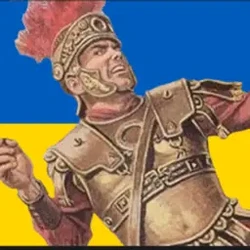I greatly recommend Ada Palmer’s “Inventing the Renaissance” if you have a lot of time, mild history literacy, and an interest in the Renaissance even passing. She talks a lot about Nick the practical statesmen who just didn’t want to see Florence get repeatedly invaded, conquered, and looted.
https://press.uchicago.edu/ucp/books/book/chicago/I/bo246135916.html
Context: One interpretation of Niccolo Machiavelli was as a practical “patriot” who saw the turmoil that befell so many of the great cities of Italy during their warring and feuding. So he invented his controversial political ideology that influences modern day politics. He knew his time as ruler of Florence was limited. So he wrote “The Prince” as a manual for how he managed to keep mercenaries out of Florence and freely circulated to his friends and then to his successor the Medicis
Basically everything you just said was wrong.
He never ruled Florence, so yeah I guess that time was rather limited. He was just a somewhat senior official.
His most influential decision was convincing Florence to restablish the citizen’s militia, patterned on his understanding of the Roman Republican and Greek militias (and he was wrong about a lot of it, but he didn’t have Google so honestly he did a pretty good job in his The Art of War).
The militia did… Okay, considering, but still lost and the Florentine Republic was conquered. Not really his fault considering the Medicis begged daddy Pope and Spain to do it for them.
Also The Prince was written to get a job in the government of the people that conquered his home republic. He was a well known critic of “princedoms” compared to republics and he was basically saying “but that’s just my preference, bro, I can still be a good advisor to you”
They tortured him instead, and he retired to the countryside and said quite a lot about how that was much nicer, actually.
This is, btw, all in the wiki you linked.
I agree that ruler was the wrong word. “Renaissance Henry Kissinger” is certainly more accurate.
I disagree that his most influential move was the militia. His most influential move was the complex diplomatic network of alliances, treaties, and call backs to how great Rome was was objectively more influential since we actually still do it.
The Medici also didn’t really beg daddy pope. I’m pretty sure that the pope was a Medici. I’ll edit here if I’m wrong: Not a Medici, but was good friends with the two Medici Popes
He apparently wrote a lot in his correspondences how much he loved Florence and despite the torture, he did get a job writing the histories of Florence paid for by the Medici who did originally exile him.
All of that, BTW, was also in the wikipedia pages I linked.
it does not seem that he thought it was a good way to run a state, but the necessary way if you were going to be an authoritarian ass hat.
If the ruler was to be an unelected, unaccountable tyrant, then this was how they need to behave to not collapse in on them selves and become prey to all those around them.
It’s a very interesting interpretation of the work, that aligns fairly closely with a lot of modern scholarship around the dynamics of authoritarian regimes.
It was a job application. He thought republics were the best way to run a society and spends a lot of time in his other works talking about how that should happen and why princedoms kind of suck, actually.
Not that he was a human rights believer or anything, quite far from it actually.
Also, those meme seems to be implying he ruled Florence which is very wrong.
Thanks for the book recommendation! I’m a newly mild history literate, so looks like a good time.
Dude kinda looks like Al Bundy.
My brain is fried.
I thought you said A.I. Bundy and I was trying so hard to see how this looked like A.I.
You don’t have to like showing shoes to fat ladies, but they have to think you love doing it.



